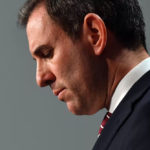Arvanitakis on American politics: The National Conventions and three trends to watch

In a recent tweet, high profile barrister and human rights advocate Julian Burnside, tweeted:
If Trump wins in the November election, it will be tragic. It will be due to: – him cheating, or – Russian interference, or – the USA public being breath-takingly stupid. In any event, the end of USA as the world’s leading Western nation.
While Burnside is someone I deeply respect and have sat with him on panels, this portrayal of Trump support is problematic and widely inaccurate.
As I have written over the last twelve months, to understand the Trump phenomenon we must look at the failings of both centre left and centre right parties, the economic and social consequences of neoliberalism and the many trade deals that have made many American citizens feel ignored and sacrificed for opportunities that benefit the few.
Trump promised something different. He was an outsider who vowed to ‘drain the swamp’, to speak plainly, to put America first and not be captured by previous agreements which he described as corrupt.
While critics have been relentless in attacking Trump, this has merely added to his narrative that he is being persecuted by ‘elites’ – and specifically liberal elites – who have sacrificed America for their vague cosmopolitan ideologies.
Over the past week, we have witnessed by the 2020 Democratic and Republican National Conventions, and they tell the story of two Americas. The Democrats presented the Trump Administration as corrupt, incompetent, racist and having failed in its response to the Covid19 crisis.
In contrast, the Republicans have presented an Administration that is energetic and delivered on its promises of rebuilding the economy, draining the swamp, ripping up bad deals and bringing back American values particularly through the appointment of conservative judges.
Looking at current polling, Trump is behind enough for his supporters to be concerned but not far enough for the Democrats to be comfortable.
It is difficult to know what will happen next, but here are three issues that will significantly shape the next few months.
The law and order debate
The death of George Floyd rightfully raised the issue of police brutality and violence towards America’s non-white communities. There was a surge of support for the Black Lives Matter movement (BLM) and a backlash towards some of the President’s rhetoric.
While the support has been sustained to a degree, there are signs of protest fatigue as some have led to violence. While there may be little or no evidence that the BLM protestors are behind this, violence is violence and the calls to ‘defund the police’ play into Trump’s narrative that ‘Democratic Governors’ have lost control.
This law and order debate is incredibly powerful and as the New York Times reminded us, it worked wonders for George Bush Senior when he used negative campaigning to target Michael Dukakis as a liberal who failed in protecting the vulnerable.
Drawing a dystopian future based on weak law and order was a strong theme at the Republican convention – and will continue to feature in Republican messaging leading up to the election.
The vulnerabilities of the Biden coalition
While the National Convention was a unique exercise in political discipline that brought together the entire spectrum of the Democratic Party – from Bernie Sanders and Alexandria Ocasio Cortez, to former Republican Ohio Governor John Kasich – no one is sure how long this can last.
There are tensions on significant policies: Medicare for all, gun control, trade deals, the Middle East and Israel just to name a few. While Trump has a strong hold over the Republicans, Biden’s control seems limited at best.
Yes, Biden delivered what has been described as one of the best speeches of his career and performed well, but he is also known to frequently misstep. We do not know what will happen if the Biden coalition begins to fray or how he will react if it does.
Mail voting
Many states in the US already have mail in ballots and many do not. While Trump has worked to cast doubt on the validity of mail in votes by claiming, without evidence, that they are subject to fraud, the real risk is that the US Postal Service is simply not equipped to deal with a surge in mail in voting.
Unlike previous elections where the winner is usually announced on the evening of the contest, the mail in process and likely close election will mean that no clear winner will be announced until weeks later. This will cast doubt on the legitimacy of the winner.
Concerns are already being raised about how to prepare the American public for this. The Trump Administration knows how to make chaos work to their benefit and will continue to raise concerns about mail in voting. The end result may be that people are dissuaded from actually bothering to vote at all!
The 2020 election will no doubt be one that political scientists will use as a case study for decades to come: let’s hope it is for all the right reasons.
Professor James Arvanitakis is the Executive Director of the Australian American Fulbright Commission – one of the world’s most prestigious international education and cultural exchange programs.














